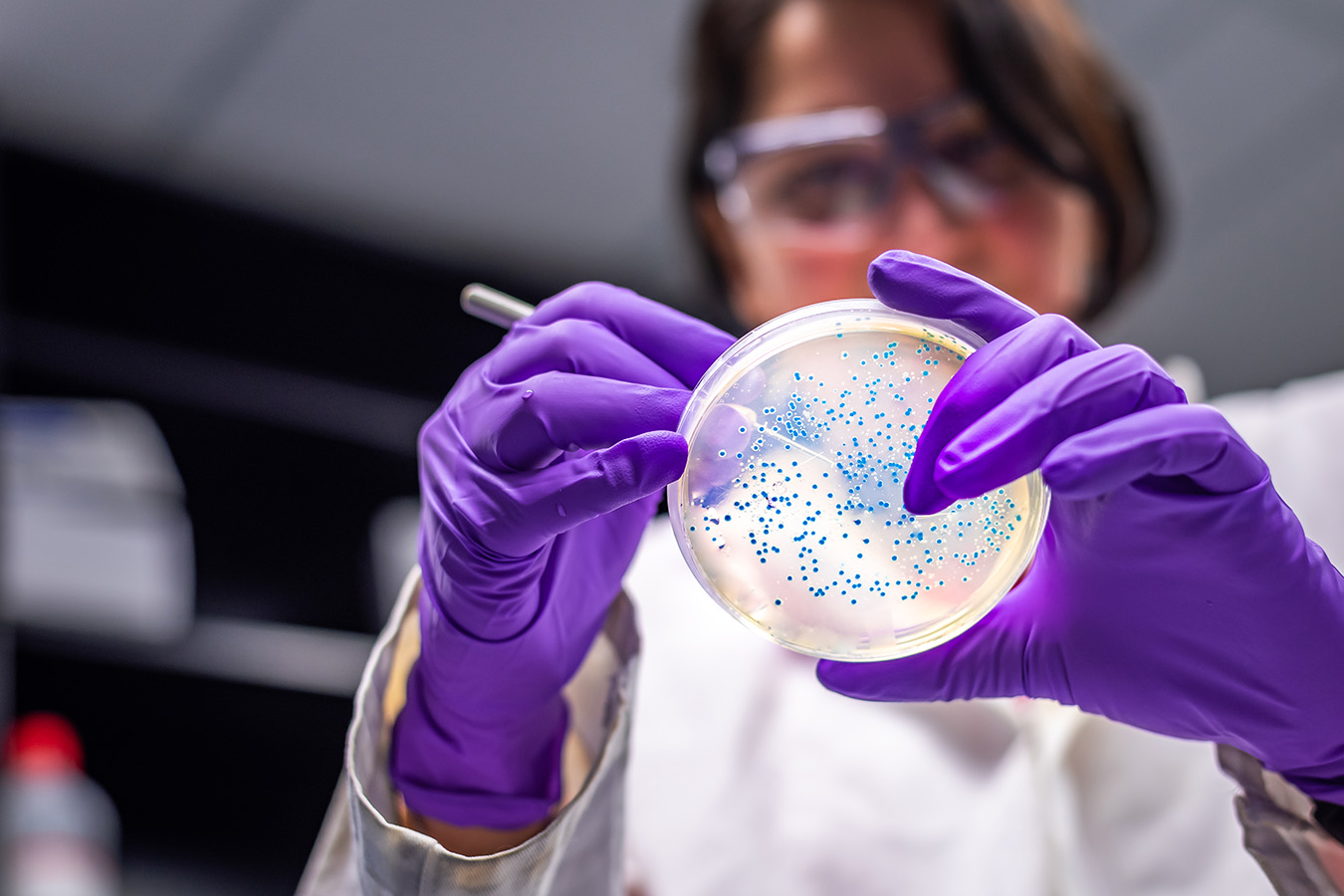Treatment-Resistant Superbugs: A Global Threat

The name alone — superbugs — sounds like the premise of a horror movie. It’s enough to instill a fear of contamination and death. But as researchers find more infections that modern medicine can no longer conquer, that alarm may actually be justified.
“The term superbug is not a medical term,” says Bhavarth Shukla, M.D., M.P.H., medical director of infection control at the University of Miami Health System. “But it’s used to describe any organism, bacterial or fungal, that is resistant to some or all antibiotics.”
Unfortunately, superbugs is a crisis of our own making.
The overuse and misuse of antibiotics have forced scientists to issue a dire warning: One day, we may run out of effective drugs to treat some infections.
The story of superbugs mirrors that of antibiotics. Hailed as revolutionary, even miraculous, when discovered in the early part of the last century, antibiotics have long been the stalwart soldiers battling once-fatal diseases. Since their addition to the medical toolbox, they’ve saved millions of life and shortened all manner of illnesses.
But too much of a good thing exacts a price.
As the prevalence of antibiotics increased, some bacteria mutated to a state of resistance. The result? Once curable infections such as gonorrhea, pneumonia, and tuberculosis have become increasingly harder to treat. What’s more, the number of these superbugs is growing.
The U.S. Centers for Disease Control and Prevention’s National Healthcare Safety Network (NHSN) runs a surveillance system that collects data on both antibiotic prescribing and antibiotic-resistant infections. In July, the CDC told healthcare facilities and clinical laboratories to be on the alert for Candida auris (C. auris) infections in their patients. It had tracked an outbreak of the potentially deadly fungus to a Washington D.C. nursing home and two Dallas hospital.
But C. auris is just one of several treatment-resistant infections.
In its 2019 Antibiotic Resistance Threats Report, the CDC listed 18 dangerous organisms, adding two to the “urgent” category: C. auris and carbapenem-resistant Acinetobacter. In addition to these two, there are three other “Urgent” threats: carbapenem-resistant Enterobacteriaceae (CRE), Neisseria gonorrhoeae, and Clostridioides difficile.
Thirteen other infections make up the CDC’s watch list, which grew by three from its last report. “These infections pose a serious threat and are becoming more resistant,” Dr. Shukla says. They could eventually land on the “urgent” column.
About 2.8 million Americans are infected by superbugs every year and more than 35,000 die as a result, according to the CDC. Put another way, someone in the United States gets an antibiotic-resistant infection every 11 seconds, on average, and every 15 minutes, someone dies from one of those infections. One study, sponsored by the British government, estimated that by 2050 at least 10 million people worldwide would die each year from these superbug infections.
The urgency of the problem is such that international health organizations, not just the CDC, have been monitoring the situation for years.
The World Health Organization calls antimicrobial resistance “a global health and development threat” and “one of the top 10 global public health threats facing humanity.”
Dr. Shukla calls the possibility of running out of effective antibiotics “very serious and concerning.” He points to ongoing research efforts to understand how and why an organism becomes resistant to treatment. Awareness of the problem has also prompted clinicians to modify their prescription practices.
“We need to be more judicious in our use of antibiotics, not just in humans but also in the environment, including with livestock and food production,” he says.
That means people should stop demanding an antibiotic for a cold, a practice that was common among certain groups until recently. “Patients feel better if they’re taking something for it, but the vast majority of colds are due to viruses. Antibiotics won’t help,” Dr. Shukla adds.
What’s more, simple options to prevent infection are, quite literally, at our fingertips.
His suggestions:
- Wash your hands frequently.
- Stay away from people who are sick.
- Get vaccinated for various diseases.
- Handle meat according to label instructions.
“The key takeaway is that we must recognize and manage infections appropriately.”

Ana Veciana-Suarez, Guest Columnist
Ana is a regular contributor to the University of Miami Health System. She is a renowned journalist and author who has worked at The Miami Herald, The Miami News, and The Palm Beach Post. Visit her website at anavecianasuarez.com or follow @AnaVeciana on Twitter.
Tags: disease transmission, Dr. Bhavarth Shukla, infectious disease
